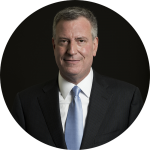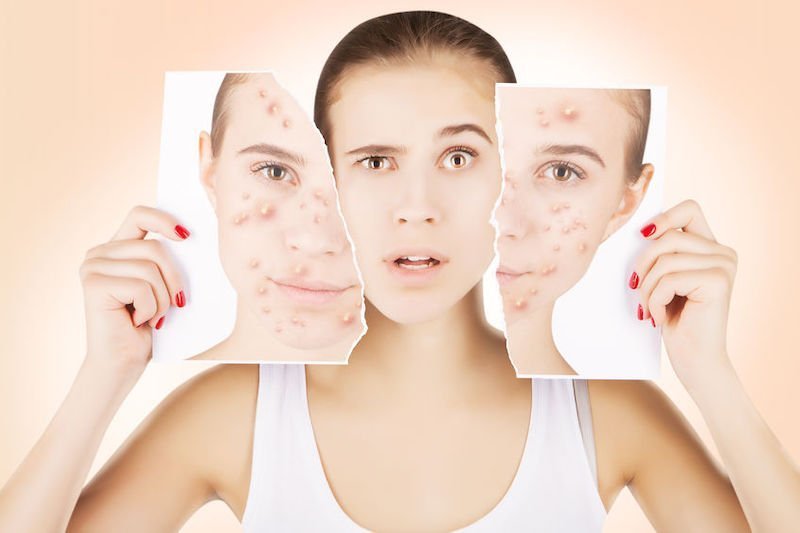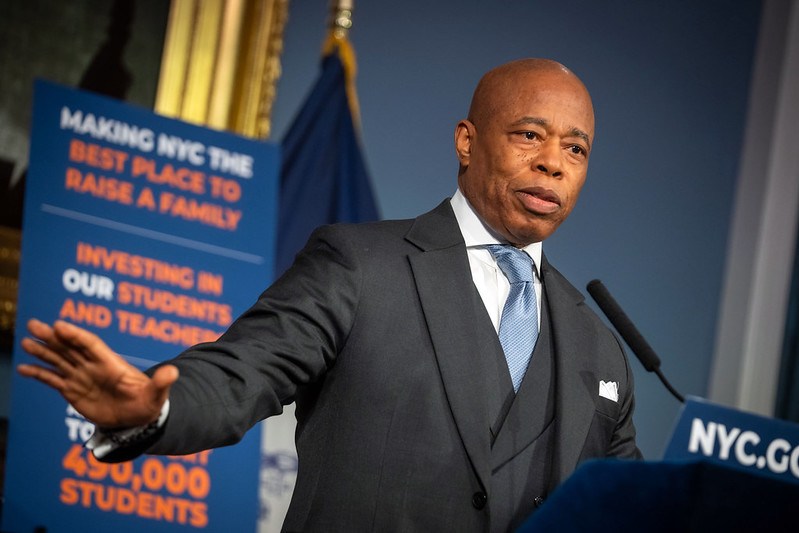Mayor Bill de Blasio and Health Commissioner Dr. Oxiris Barbot yesterday announced the end to the measles public health emergency declared on April 9 for parts of Brooklyn.
Measles outbreaks are typically declared over when two incubation periods for measles (the equivalent of 42 days) have passed since the last infectious day of the last persons with measles in affected areas. That time period has now passed for the people most recently infected with measles and reported to the Health Department.

“Ending the measles outbreak required extensive collaboration with community organizations and Jewish leaders. They helped encourage vaccinations and achieve record immunization levels in parts of Brooklyn,” said de Blasio. “As we head back to school this week, we just remain vigilant. To keep our children and communities safe, I urge all New Yorkers to get vaccinated. It’s the best defense we have.”
Ending this outbreak required a major public health response and extensive community collaboration. To battle the outbreak, the City spent over $6 million and dedicated more than 500 staff to the response; disseminated tens of thousands of pro-vaccination booklets; conducted multiple rounds of robocalls; sent letters and texts to local residents; published ads and distributed educational materials in English, Yiddish, and Spanish; launched an ad campaign that appeared at bus shelters, LinkNYC kiosks, and in newspapers as well as online; hosted a tele-Town Hall to counter anti-vaccination propaganda; visited doctor’s offices; and hosted and attended numerous community events, among many other activities.
Since the outbreak in October 2018, ODA has administered more than 5,000 MMR vaccinations and continues to work to educate area residents about how essential timely vaccinations are to maintaining a healthy family and community.
This was the largest measles outbreak in New York City in nearly three decades.
- Since the outbreak started in October of 2018, 654 individuals were diagnosed with measles.
- There have been 52 measles-related hospitalizations and 16 admissions to intensive care due to measles complications since the beginning of the outbreak.
- Most measles cases were diagnosed in people under 18 years of age (525 cases or 80%).
- Most measles cases were among unvaccinated (73%), incompletely vaccinated (7%) or individuals or persons who did not know their vaccination status (15%).
- While there were cases of measles in all five boroughs, the majority of cases (72%) occurred in the Williamsburg neighborhood (ZIP codes 11205, 11206, 11211, 11249).
In Williamsburg and Borough Park there have been 15,541 doses of the measles-mumps-rubella vaccine administered since the 4/9 Emergency Order, which represents a near 41% increase compared to the same time period last year.
While no new cases have been reported since mid-July, the Health Department will continue monitoring and may add cases retrospectively as they are identified. Those cases will be attributed to the month in which rash onset has occurred. Therefore, the total case count may increase even after the outbreak is declared over.
Affected ZIP codes have been under an Emergency Order since April 9, requiring people who reside or work in these ZIP codes to be vaccinated or have immunity against measles or face potential fines. With the end of local, active transmission of measles, the April 9 Emergency Order has been rescinded.
Also lifted are the exclusion requirements for unvaccinated children that have been in effect for Williamsburg and parts of Borough Park since December 2018.

“I applaud the Department of Health and Mental Hygiene and community leaders for ending the measles outbreak in New York City,” said City Council Member Stephen Levin (D-Boerum Hill, Brooklyn Heights, Brooklyn Navy Yard, Downtown Brooklyn, Dumbo, Fulton Ferry, Greenpoint, Vinegar Hill, Williamsburg). “This is great news and thanks to a close public health and community-led partnership. Williamsburg residents can now breathe a sigh of relief, but it is critical we remain vigilant. Measles is an extremely contagious disease and we need to monitor the situation closely as students go back to school. I look forward to continuing to work with stakeholders to ensure New Yorkers have comprehensive information and full access to vaccines; in the midst of ongoing measles outbreaks in the United States and abroad, we cannot be too careful.”










